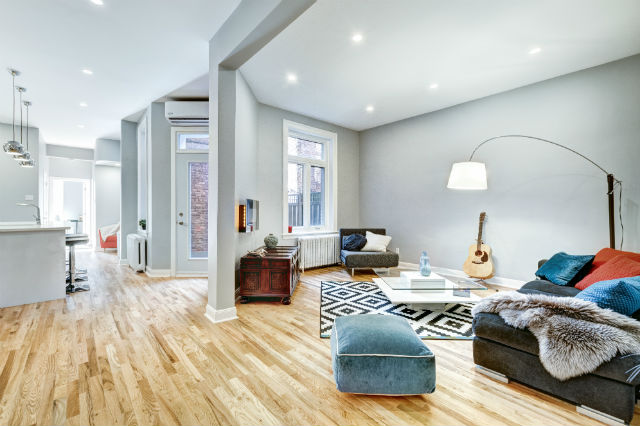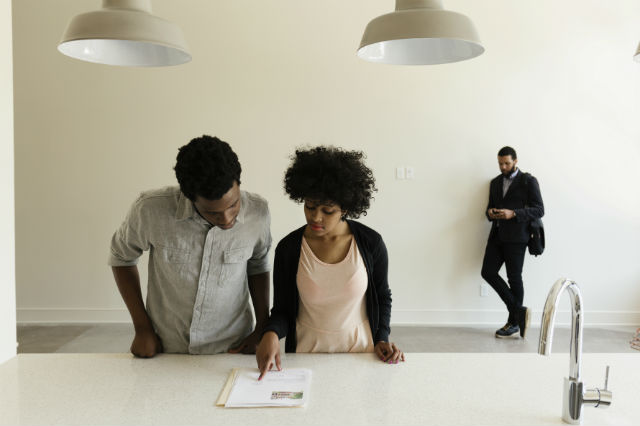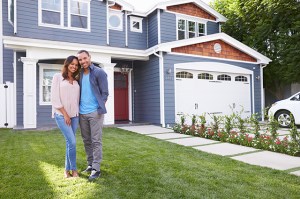If you’ve tuned into HGTV lately (or really any reality TV or do-it-yourself network), the chances are pretty good you landed on a show about what it’s like to buy a flipped house.
From programs like “Flip or Flop” or “Good Bones” or “Masters of Flip,” we just can’t seem to get enough house flipping entertainment. There’s even a show called “Zombie House Flipping.”
While the basic strategy of house flipping – purchasing a less-than ideal property, making improvements and then reselling at a profit – is nothing new, the popularity of flipping has surged over the past decade. The trend surged in 2021, when 323,465 U.S. single family homes and condos were flipped, according to California-based research firm ATTOM Data Solutions. That number represented a 26% from 2020, and the highest total since 2006.
With more and more flipped houses hitting the market, there’s a good chance your next home could fall into this category. If that’s the case, here’s what you can expect during the home-buying process.
What to Know When Buying a Flipped House
Whether you’re actively pursuing a flipped house or simply run across some flips during your house hunting process, knowing some of the generalities and pros and cons of buying a flipped house can help you make better investment and purchasing decisions. To really get inside the mind of a house flipper, we turned to financial coach Karen Ford, author of the best-selling Amazon book “Money Matters,” who has been flipping houses for nearly a decade.
First of all, don’t expect a flipped house to look as perfect as the ones on TV. Most flipped houses start out as so-called “distressed” properties (think foreclosures, tax seizures, etc.), and while professional flippers make substantial capital improvements, their focus is on improving the overall bones and aesthetics of the property and relisting it quickly, not addressing every tiny imperfection.
Avoid these common home buying mistakes.
“What we’re immediately looking for are any foundation issues, any water damage, the quality of the roof and the electrical and plumbing service,” says Ford. “A successful flip might only take four to six weeks. Time is money, and the longer it takes us to get that flip back in the market, the more our costs go up.”
Cost containment is key for house flippers trying to recoup their initial investment (and make a profit), so home buyers should not expect any extensive remodeling or extremely high-end finishes or appliances in a flipped home. There might be a new roof or the hardwood floors might be refinished, and damaged windows or doors replaced, but the more common improvements will be things like new carpet, fresh paint and updated hardware.

Price can also be a signal that a home on the market has just been flipped. Most professional flippers are trying to bring lower-quality properties up to the level of other houses (called “comps”) that are successfully selling in a neighborhood. That means the most expensive house on the block shouldn’t be a flipped house. Flippers tend to price homes just at or below market in order to sell quickly and get paid.
“We always evaluate a neighborhood and know what the comps are and know what we are going to resell for before we buy a deal” Ford says. “It’s a good safety net to lowball against comps, so if houses in a neighborhood are selling between 130 and 150 thousand dollars, we’d never take on a deal with the expectation that we’d sell for 160 thousand. We might list it for 150 thousand, but we’d always plan the remodel and renovation against a sell price closer to 130.”
Finally, for homeowners trying to figure out what to know when buying a flipped house, Ford says applying common sense and the due diligence you’d bring to any home purchase is key. While most house flippers look for “good bones” with easy improvements, don’t assume that your house is in great shape simply because a flipper just did their thing.
“We don’t get what we expect, we get what we INSPECT,” Ford says. “Don’t trust. Always check things out and inspect the inside and the outside of your home purchase carefully. Evaluate the neighborhood and the comp properties and have a plan, and you’ll always be more likely to make a more educated investment into your new home.”
And who knows, you just might end up flipping it again yourself.
Flipped house or new construction, the first step to home ownership is securing a mortgage, and AAA is here to help. To learn more about our home loan services or to speak to a mortgage specialist now, visit AAA.com.













